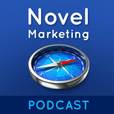
Summary: <br> Do you ever feel alone in the writing journey? Or perhaps you are not sure what to do next. One thing every hero needs on the hero’s journey is a mentor. The journey of writing is no different. In this episode I am going to talk about 10 different places to find mentorship.<br> <br> <br> <br> <br> <br> <br> <br> Why Mentorship is Important<br> <br> <br> <br> * Most authors feel like they are the exception, the chosen one, the one for whom writing will be easy and successful. * A mentor is the person who sets you straight and teaches you that you still have a lot to learn.* It’s hard to read the label when you are standing inside the bottle.* Easy to make the same mistakes over and over.* Helps with blind spots.* There is a lot to learn to succeed. <br> <br> <br> <br> How to Tell If You’re Ready for Mentorship<br> <br> <br> <br> * Are you willing to suffer criticism to get better?* Ready to commit to implement the advice you get?* Every hero in every story thinks he is farther along than he really is. The mentor shows him that he still has a lot to learn. <br> <br> <br> <br> There is No Right or Wrong Answer<br> <br> <br> <br> Most successful authors avail themselves of most of these mentorship avenues at one point or another. Depending on where you are in your journey, one of these avenues may be more helpful to you than others. <br> <br> <br> <br> Stop thinking about strategies in terms of right and wrong. It is better to think about it in terms of pros and cons. Advantages and disadvantages. <br> <br> <br> <br> #1: Books<br> <br> <br> <br> Pros:<br> <br> <br> <br> * Cheap* Can learn just about anything* Expert advice* Can learn from dead mentors (<a href="http://twain.lib.virginia.edu/projects/rissetto/offense.html">Literary Offenses of James Fenimore Cooper</a>)<br> <br> <br> <br> Cons:<br> <br> <br> <br> * Dated* Impersonal* No Accountability* No Encouragement <br> <br> <br> <br> Bottom Line: Access the minds of experts for only $10 per expert. Impersonal and requires a lot of self discipline. <br> <br> <br> <br> #2: Podcasts & Blogs<br> <br> <br> <br> Pros:<br> <br> <br> <br> * Free* Can learn just about anything* Expert advice* Cutting edge<br> <br> <br> <br> Cons:<br> <br> <br> <br> * Interaction Limited* Unfocused* No Accountability* No Encouragement <br> <br> <br> <br> Bottom Line: <br> <br> <br> <br> * A free, timely and impersonal way up the learning curve.<br> <br> <br> <br> #3: Writers Conferences <br> <br> <br> <br> Pros: <br> <br> <br> <br> * In Person* Expert* Focused* Excellent Networking* One of the best ways to find an agent<br> <br> <br> <br> Cons:<br> <br> <br> <br> * Limited in time and scope* Drinking from a Firehose * No Accountability* Expensive, Especially if you go to a lot.<br> <br> <br> <br> <br> <br> <br> <br> Bottom Line: <br> <br> <br> <br> * The default for most authors. An easy way to spend a lot of money without much to show for it education wise. But for networking, nothing beats a conference. <br> <br> <br> <br> #4 Online Courses<br> <br> <br> <br> Online courses blend of pros and cons of podcasts, conferences, and books. <br> <br> <br> <br> Pros: <br> <br> <br> <br> * Expert* Focused* The more you pay the more personal they tend to be* Learn at your own pace* Great value compared to conference.<br> <br> <br> <br> Cons:<br> <br> <br> <br> * Static* Impersonal (you are one of many)* Limited Accountability* Limited Encouragement * Limited Focus<br> <br> <br> <br> Bottom Line: <br> <br> <br> <br> * One of the best ways to fill in knowledge gaps.
